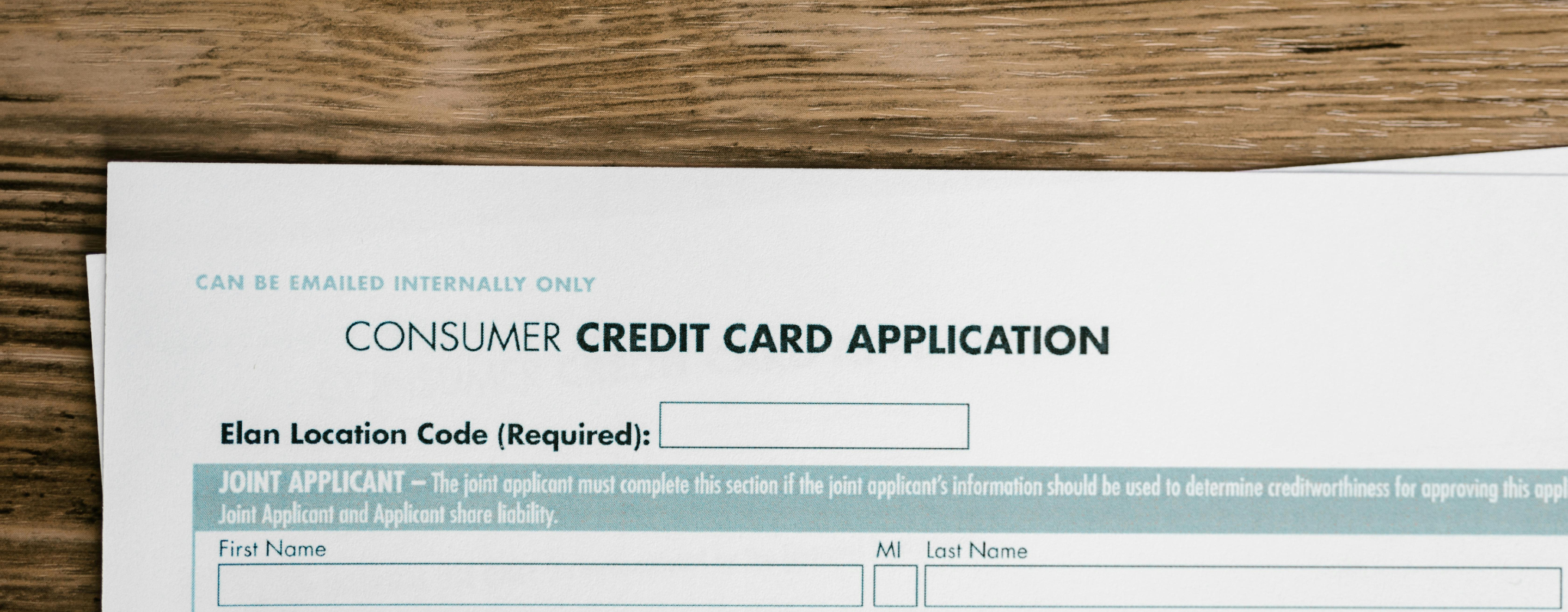12 Reasons Why Mortgage Applications Are Declined

According to a report in The Guardian, one in six homeowners have been refused a home loan in the past. It is a situation that is very common. The process of applying for a mortgage and the criteria requirements can be rather confusing.
Some people are tempted to start applying for a mortgage online without assessing their financial situation and likelihood of getting approved. This can have negative consequences, for example your credit score could be affected by a declined mortgage application.
To understand why mortgage rejections happen, read below or watch this handy video we have produced:
- 1) Too Much Debt
- 2) Lack of Income/Affordability
- 3) Poor Credit Score History
- 4) Financial Association
- 5) You Are Not Registered on The Electoral Roll
- 6) Wealthy But Cash is Tied Up in Assets
- 7) Previous Track Record
- 8) Self-Employment/Contractor
- 9) Admin Errors
- 10) Too Many Recent Credit Applications
- 11) Applying for The Wrong Type of Mortgage
- 12) Your Story Doesn't Add Up
- What to Do When Your Mortgage Application is Declined?
- Can My Mortgage Application Be Declined After An Agreement in Principle?
- How Boon Brokers Can Help You Get Your Mortgage
Too Much Debt
One of the most common questions that we hear is “Can you get a mortgage with debt?” The answer depends on several factors, including your income, credit history, and overall financial stability.
When you submit an application for a mortgage, lenders will assess any existing and accumulated debt that you have. This will include credit cards, store cards, car loans, and personal loans. If you are flagged with having high levels of debt, lenders are more likely to view your application as a risk with the assumption that you may not be able to repay the mortgage.
However, having outstanding debt doesn’t automatically mean your mortgage application will be declined. Lenders will always evaluate your specific case, which means they will look at exactly how much mortgage is too much based on your debt-to-income ratio. If your financial situation demonstrates that you can manage both your existing debt and a new mortgage, you may still be approved.
Lack of Income/Affordability
Your income is a key factor and plays a crucial role in determining whether a lender will view your ‘value’ to be able to afford the regular mortgage repayments over the length of the agreed term.
Essentially, every mortgage provider wants to reduce the risk that you would not be able to make the agreed upon repayment, and as such, each lender will assess whether your earnings are sufficient to cover not only your existing debts, but also the additional burden of regular mortgage repayments. Should you have a lower income, this can affect the overall mortgage amount and potentially lead to your mortgage application being declined. In short, if the lender believes that for any reason you won’t be able to afford the loan, your application will be rejected – even if you meet certain other criteria.
Most mortgage providers offer online mortgage affordability tools that will help you understand exactly how much you can borrow based on your percentage mortgage income. Here at Boon Brokers, we also provide an easy to use mortgage calculator that can help you work out how much you can afford to borrow and what type of mortgage you will qualify for.
For instance, if you – the borrower – apply for a mortgage of £250,000 but the calculation shows your borrowing limit is only £220,000, your application is likely to be declined due to affordability concerns.
Shared Ownership
Another option available is shared ownership. This government-backed scheme opens a pathway for those who are struggling to afford a property following a mortgage rejection.
With shared ownership, you – the mortgage borrower – would buy a percentage of a property on a leasehold tenure and pay rent to a housing association for their remaining share. Over time, you would be able to as you purchase more of the property – known as staircasing – the rental payments would reduce. When considering shared ownership, it is important to weigh the benefits of shared ownership against the cost, as many housing associations can charge high rental fees that must be factored into affordability calculations. As such, it is common to find areas of high demand and excessive rental costs – such as London – significantly reduce the maximum mortgage amount overall.
Poor Credit Score History
Before submitting an application for a mortgage, it’s always best to conduct a credit check – first review your mortgage credit score. This will help you gain insight into your financial standing and understand exactly what mortgage lenders will be looking at before you’re approved for a loan. Companies like Experian, Equifax, and TransUnion, all offer services to help you check your available credit report and gain insight into your financial standing.
It goes without saying, credit score and mortgages are closely linked, and so a low score may be enough for some lenders to decline your application. In addition, should your credit report show any recent missed payments, defaults, or CCJs from the past six years, this will significantly impact your chances of approval. That being said, credit scores are typically amendable. So, if you’re able to focus at least six months – the more time the better – on improving your score, this would provide a better foundation to work on.
There are some specialised bad credit mortgage lenders that may still approve your application. However, these ‘bad credit mortgages’ often come with a higher interest rate and so the impact of this is certainly worth considering.
Potential Errors on Your File
Credit report errors can happen and many credit applications find that this directly affects their credit score. It’s important to regularly check for any discrepancies or mistakes on your credit file, as even small errors could have a negative impact on your application. For example, you may find incorrect entries, payments, errors in missed payments, or simply outdated/recorded information still listed.
As these errors would inevitably affect your mortgage application, it is advised that you take steps to remove default from the credit file. All this means is that you would raise a credit report dispute with the relevant credit reference agency. As long as these errors are found and confirmed as mistakes, they will be corrected.
Addressing any credit reporting errors is a great way to bolster your credit score, ensuring that it is not the reason for a mortgage decline.
See What Our Clients Have To Say
Financial Association
Your current and historical financial links can also significantly impact your credit rating. Shared finance, such as owning a joint account, can directly affect your credit rating. As such, it is ordinarily financially advised to delink from joint accounts to ensure that their financial activities do not reflect on your own – you always want to be attractive to lenders.
It is important to note that in the case that you’re looking into a joint home loan, the mortgage lender will always review both parties’ credit histories. In this scenario, ensuring that both parties’ are financially safe will be the mortgage lender’s priority.
You’re Not Registered on the Electoral Roll
If you are not already on the electoral roll, you should apply immediately. Lenders use it to ensure that the address you provided matches official record, and it also potentially lowers your credit score. Not having this information accessible to the broker could result in your being denied your mortgage application. Registering on the electoral roll is completely free.
Wealthy But Cash Is Tied Up in Assets
Sometimes people are in a situation where they are financially wealthy, but their money is tied up in assets. For example, they might own a high-value property but don’t have regular income to show affordability of the mortgage.So, whilst they have a number of financial assets that add up to a large value, they could apply for a mortgage but get declined.
Has your Mortgage Application Been Declined?
Speak with our ExpertsPrevious Track Record
As well as reviewing your financial history in terms of looking at your past loan repayments and financial obligations, lenders will look for past behaviour for clues to how you might behave with their loan. An example of this could be if you have refinanced your mortgage every couple of years for financial gain, the lender may be cautious about lending to you.
Self-Employment/Contractor
If you’re self-employed or work as a contractor, being approved for a mortgage can sometimes be more challenging – this is due to the lack of a consistent and regular income.
In general, mortgage lenders will typically ask for the last three payslips as proof of income for employed applicants. Without a conventional monthly-salary income – the self-employed – this can be a hurdle, however, there are still options available.
Covered in our complete guide to self-employed mortgages, there are lenders who take into account various forms of income verification. Such as, tax returns or profit and loss statements.
These allow self-employed people an alternative route into how lenders can assess your ability to repay a loan.
Admin Errors
One of the most common and avoidable reasons for a declined mortgage application is where an error has been made, i.e. incorrect information has caused your application to be declined. Something as simple as a wrong house number on the address, or other small but significant details could result in not being approved.
Too Many Recent Credit Applications
Each time you submit a credit application, it’s recorded on your credit report. Multiple applications within a short period of time can be flagged as a risk for mortgage lenders, as this behaviour would typically follow applications with bad credit or overextending. It is important to remember that when applying for a mortgage, credit checks are a main factor. Lenders will assess your credit history, and too many recent applications can negatively impact your credit score and mortgage approval.
Applying for the Wrong Type of Mortgage
There are lots of different mortgage types with different sets of criteria for being accepted. For example, if you apply for a first-time buyer mortgage but you previously had a mortgage, your application would be declined.
Your Story Doesn’t Add Up
Unfortunately, it is not uncommon for some mortgage applicants to fabricate information in order to try and get a mortgage, or even to achieve a larger mortgage loan than they potentially would ordinarily qualify for under the lender’s criteria.
Stories surrounding how eligible for a mortgage people truly are now wide-spread, with some examples including having a recent pay rise that they cannot prove, or deliberately inflating the truth around their income.
Mortgage lenders will usually see through any attempts at tricking them and will perform thorough checks on all applicants.
What to Do When Your Mortgage Application Is Declined?
If your mortgage has been declined, the common reasons are likely one of the aforementioned reasons that you can find above. If you’re looking for a pinpoint on exactly why your mortgage application was declined, then the lender you applied to would ordinarily be able to provide the key details on why your application was rejected.
There are some quick steps you can take to improve your financial profile, such as closing unused accounts, financially de-linking from a past partner, or registering on the electoral roll. With each positive change you can help improve your overall credit and financial standing.
Should your credit history be the main reason for your application decline, try requesting a recent report from a credit agency so that you can review any missed payments or accounts affecting your mortgage application. It is not uncommon for people to find a forgotten loan or financial question marks, as it were, that can be rectified.
If you have large monthly loan payments that will be paid off soon, your mortgage application could be approved once that debt is cleared. Likewise, if you have missed payments on your credit history from several years ago, these will no longer appear on your report after six years, leading to an improved credit score.
You might also consider applying with a different lender, as each one has unique lending criteria. If one lender rejects your application, another might approve it. However, this may come with a higher interest rate. To find the best mortgage lender for your needs, it’s a good idea to speak with a mortgage broker like Boon Brokers.
Improve Your Credit Score
If your mortgage application was declined due to your credit score, it’s crucial to work on improving it. One of the fastest ways to do so is by using credit cards that improve credit score. These cards can help boost your credit rating by showing a consistent history of responsible borrowing and timely repayments.
Additionally, if you’re wondering about the best credit card to improve credit score, look for cards that offer low-interest rates and favourable repayment terms.
Check Your Mortgage Calculator
Before reapplying for a mortgage agreement, it’s wise to use a mortgage calculator to check if your loan application will be successful. You can use the Boon Brokers mortgage calculator to estimate how much you might be able to borrow and what your monthly repayments will be. This tool helps you understand your financial standing and prepare accordingly, ensuring your next mortgage application has the best chance of approval.
Can My Mortgage Application Be Declined After an Agreement in Principle?
The short answer to “Can a mortgage in principle be declined?” is yes – it is possible for a mortgage application to be declined after an agreement in principle.
Although you may have passed the initial stages, subsequent checks can sometimes reveal issues that weren’t seen at first. While an agreement in principle (AIP) can give you an indication of how much you can borrow, it does not stand as a guarantee for a mortgage approval. Instead, the mortgage in principle simply proves an estimation that allows you to start searching for homes within the predicted price range. However, an in-depth review, that is conducted after an agreement in principle, could reveal that you don’t actually meet the lenders full criteria for mortgage approval, and so ultimately your application will be declined.
How Boon Brokers Can Help You Get Your Mortgage
Here at Boon Brokers, we specialise in providing transparent and professional mortgage advice without charging any fee for our services.
If you’re concerned that your mortgage application might be declined, or if you simply want guidance on the mortgage process and what lenders are looking for – Contact Boon Brokers Today – we’re happy to discuss your financial situation and help you understand your options for mortgage approval.
Need Mortgage Advice?
Submit an Enquiry
Gerard BoonB.A. (Hons), CeMAP, CeRER
Gerard is a co-founder and partner of Boon Brokers. Having studied many areas of financial services at the University of Leeds, and following completion of his CeMAP and CeRER qualifications, Gerard has acquired a vast knowledge of the mortgage, insurance and equity release industry.Related Articles
- What Proof Of Income Is Needed For A Mortgage?
- How To Get A £250,000 Mortgage
- What Is A Mortgage In Principle?
- How Much Deposit Do I Need For A Mortgage
- How To Improve Your Chances Of Getting A Mortgage
- How To Get A Mortgage With Bad Credit
- How To Get A Mortgage After Bankruptcy
- Getting A Joint Mortgage With Your Parents
- How To Get A Mortgage With A New Job
- What Is An Offset Mortgage?
- Should I Use My Estate Agents Mortgage Broker?
- Should I Buy A House At Auction?










